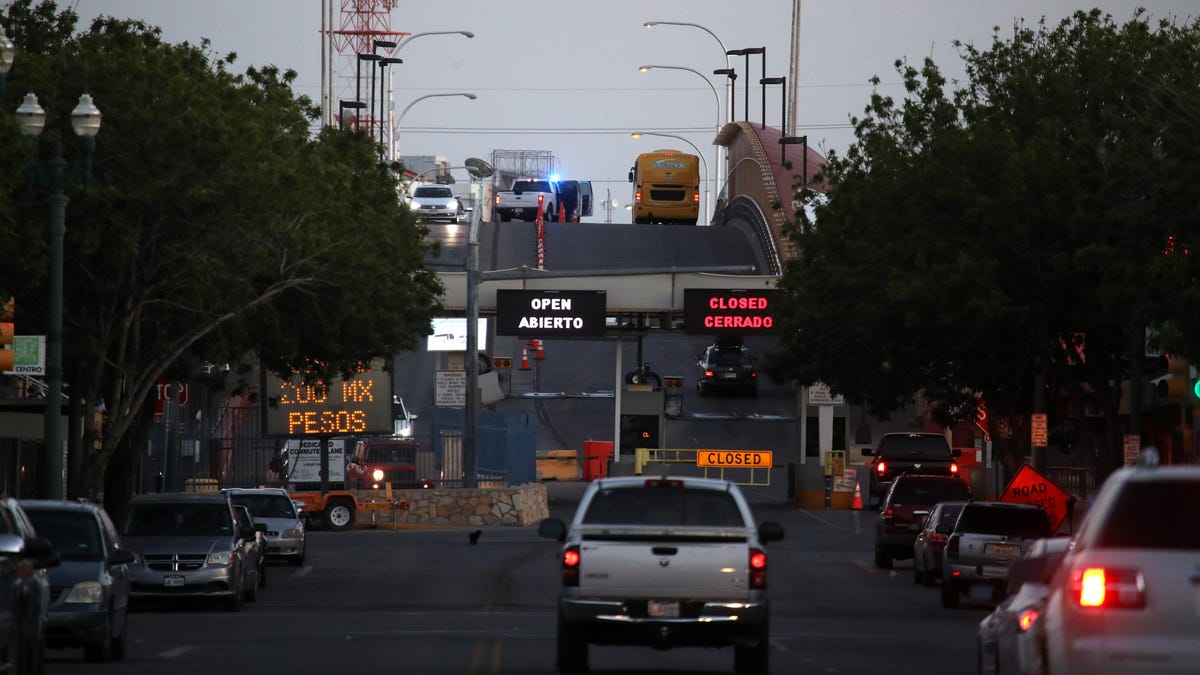Customs and Border Protection officers currently face a nearly impossible task: stopping the constant flow of fentanyl and other drugs into the U.S. via the southern border. CBP seized 43,000 pounds of the stuff last year, half of which came from just one border crossing — Mariposa Port of Entry in Nogales, Arizona. To help them snag even more of this killer drug, the U.S. is installing high-tech super strong X-ray machines, and even eyeing the possibility of using AI to review the images they generate.
President Biden noted in his state of the union that a bipartisan border bill waylaid by House Republicans would pay for “…100 more high-tech drug detection machines” at the border. These machines don’t actually detect the drugs themselves; rather, they are strong X-ray machines generating images that must be reviewed by CBP officers. They’re looking for deviations from trucker’s stated haul, or secret compartments in personal cars.
Officers are aiming to scan 100 percent of vehicles that comes through ports and border crossings, but that’s obviously a huge undertaking, one that is significantly slowed by bureaucracy and human frailty. Right now, only 20 percent of trucks are scanned, and only five percent of personal vehicles. So the feds are looking to AI to help scan cars before drivers reach a CBP officer, according to the Verge:
“They have a single officer reviewing a single image,” said Kevin McAleenan, who served as the CBP commissioner under Trump from 2018 to 2019. “There’s a limitation. If you’re going to try to dramatically increase the number of inspections, you’re going to need not only a lot more scanners and a lot more officers to read them, or you’re going to need the assistance of technology.”
McAleenan, the putative acting DHS secretary for seven months in 2019, co-founded the trade and travel AI company Pangiam in 2020. Last year, Pangiam was awarded a $21.5 million contract to develop “Anomaly Detection Algorithms” that will use artificial intelligence to analyze the X-ray images scanned at the border, which McAleenan said will act as a “force multiplier” that will speed vehicle processing at the border.
At most ports of entry, the X-rays happen as part of secondary inspections. Sometimes a driver is pulled for a more intense screening after being flagged by the officer who conducted the primary inspection. Other times, drivers are randomly selected for secondary inspections. CBP is working on installing X-ray scanners before the primary inspection point, so all the cars and trucks heading into the US can be X-rayed before they even make it to the first officer.
“Based on how the cross-border supply chain works, a lot of the trucks are actually coming back to the US empty,” McAleenan said. The software, he explained, could “confirm that this truck said it’s empty, the manifest said it’s empty, the scan said it’s empty — no need for the officer to waste his or her valuable time reviewing that image.”
The AI tool is not yet available at the border. In fact, while the advanced X-ray machines have been ordered, many are sitting in a warehouse until CBP receive the funds to install them — funds promised in the failed bipartisan bill.
I’m not a big fan of CBP agents, especially due to their vast overreach in my home state of Michigan. And naturally, there are major privacy considerations with such machines. But with fentanyl overdose deaths in the U.S. are constantly rising, with 70,601 deaths in 2021, according to the National Institute on Drug Abuse, the quicker these machines can get up and running, the better.

